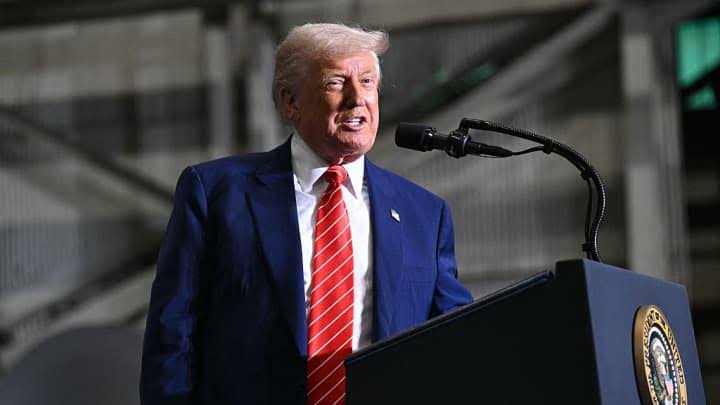U.S. President Donald Trump has signed a new proclamation reinstating a controversial travel ban, restricting entry into the United States for citizens of 12 countries. The announcement, made on Wednesday, marks a renewed effort by the Trump administration to tighten immigration policies amid heightened national security concerns.
According to the proclamation, nationals from the following countries will be completely barred from entering the U.S.: Afghanistan, Myanmar, Chad, Congo, Equatorial Guinea, Eritrea, Haiti, Iran, Libya, Somalia, Sudan, and Yemen. Additionally, partial restrictions will apply to citizens from Burundi, Cuba, Laos, Sierra Leone, Togo, Turkmenistan, and Venezuela.
Trump defended the decision in a video posted on X (formerly Twitter), stating, “We will not allow people to enter our country who wish to do us harm.” He added that the list may be revised in the future and more countries could be included.
The travel ban will go into effect on June 9, 2025, at 12:01 a.m. EDT. However, it will not affect individuals holding valid visas issued before that date.
This latest directive follows a similar ban enacted during Trump’s first term, which initially targeted seven Muslim-majority countries. That policy underwent multiple legal challenges before being upheld by the U.S. Supreme Court in 2018. President Joe Biden later revoked it in 2021, calling it discriminatory and harmful to America’s global image.
In justifying the renewed restrictions, Trump said the affected nations were either harboring terrorist networks, failing to cooperate with U.S. security protocols, lacking proper identity verification systems, or exhibiting high levels of visa overstays.
Trump also cited a recent incident in Boulder, Colorado—where an Egyptian national allegedly threw a gasoline bomb at a pro-Israel rally—as a reminder of the dangers posed by inadequate immigration controls. The suspect, Mohamed Sabry Soliman, had overstayed his tourist visa and held an expired work permit, though Egypt was not among the countries affected by the new ban.
International Reactions
Somalia quickly responded, expressing a willingness to collaborate with the U.S. to improve security measures. “Somalia values its longstanding relationship with the United States and stands ready to engage in dialogue,” said Somali Ambassador to the U.S., Dahir Hassan Abdi.
In contrast, Venezuelan Interior Minister Diosdado Cabello condemned the move, calling the U.S. government “fascist” and warning Venezuelans of the dangers of living in America.
Officials in Afghanistan, Myanmar, and Pakistan have not issued immediate responses. However, the ban has already disrupted lives—such as a 31-year-old Myanmar teacher who had been accepted into a prestigious U.S. State Department exchange program. “It’s not easy to get accepted. We worked hard for it,” she said, noting she has not received any updates since the announcement.
This move aligns with Trump’s hardline stance on border security, a key focus of his presidential campaign. In an October 2023 speech, he pledged to block individuals from regions like Gaza, Libya, Somalia, Syria, and Yemen—areas he claimed posed threats to U.S. national security.
On January 20, Trump also signed an executive order mandating stricter vetting of foreign nationals seeking entry into the United States.

